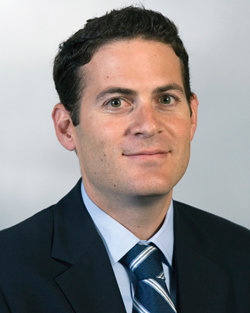by Austin Moy, PhD

James Tunnel, PhD
What is your current position and affiliation?
I am an Associate Professor in the Department of Biomedical Engineering at The University of Texas at Austin.
Please describe your education, work experience and positions held
I graduated with my BS in electrical engineering from UT Austin, then went to Rice University for graduate school, where I completed a PhD in bioengineering. During college, I interned at Motorola and also did internships during graduate school at the Beckman Laser Institute at the University of California, Irvine and at a startup company. Following graduate school, I was a postdoc at MIT before beginning my current faculty position at UT Austin.
Why did you decide to go to graduate school?
I realized during my internships at Motorola that the large corporate environment was not for me and that I also was not interested in doing traditional electrical engineering work. At the time, a lot of new programs in biomedical engineering were starting up from Whitaker Foundation funding, so I decided to explore further. I found that the interdisciplinary nature of biomedical engineering and the ability to apply my training in electrical engineering to biomedical problems were very appealing, so I applied to a few programs and decided on the bioengineering graduate program at Rice.
Why did you decide to do a postdoc?
Coming out of graduate school, I had a job offer from a startup company, so I had some options. I liked the academic freedom and ability to do my own research, so I decided to pursue a faculty position. Additionally, I have family that are university faculty, so I had a good sense of what a career in academia was like. Doing a postdoc allowed me to gain more experience and build my skills as I prepared to apply for faculty positions.
What were your career goals entering graduate school? Did they change by the time you graduated?
Going into graduate school, both industry and academia were options I was considering, though by the time I graduated, I knew that I wanted to pursue an academic career.
How did you find your post-graduate school positions?
For my postdoc, I used my knowledge of what research was being conducted in other areas of biomedical optics, which I obtained from attending conferences and meetings, to inform which labs to submit applications to, as well as applying to advertised postdoc positions. I made a conscious effort to seek postdoc positions in areas outside of my graduate school research in order to broaden my skill set and knowledge areas.
What was the transition like going from being mentored to being in a mentoring role?
It’s not exactly a “step function” (immediate transition), but more of a gradual transition. During my postdoc, I had the opportunity to mentor more junior researchers, which was very helpful.
What job hunting advice do you have for early career scientists?
I would say that it’s important for early career scientists to focus on their self-development and to develop an awareness of the field as a whole. By this, I don’t mean their own very specific area of research, but to develop skillsets necessary in the field they are interested in pursuing. Soft skills, like communication and project management, are important to develop as these are necessary skills regardless of career path. In addition, developing a larger awareness of the field can help guide and inform early career scientists to where their skillsets may be best suited and most relevant. Networking is also important; by this I don’t mean going around and collecting business cards, but talking to people to learn and understand what current trends are in your field of interest and how you can make a contribution. Conferences are a great way to facilitate these kinds of conversations, which is much better than just going to a talk and leaving afterwards.
How do you feel that the ASLMS has helped you in your career?
In a lot of ways, actually. The first ASLMS annual meeting I attended was the first oral presentation I ever gave. I also met several people who had an impact on my early career at this meeting and later on became mentors to me. The internship I had during graduate school at a startup company was largely facilitated by meeting the CEO of the company at this meeting as well. This was rather serendipitous, as it was during the internship that I met my future wife, so the ASLMS has had a very great impact on my life, both professionally and personally. Over the years, I have enjoyed and continue to enjoy attending the ASLMS annual meeting as it is the right combination of diversity in research areas and the right size of conference, which makes it easy to interact with leaders in the field.